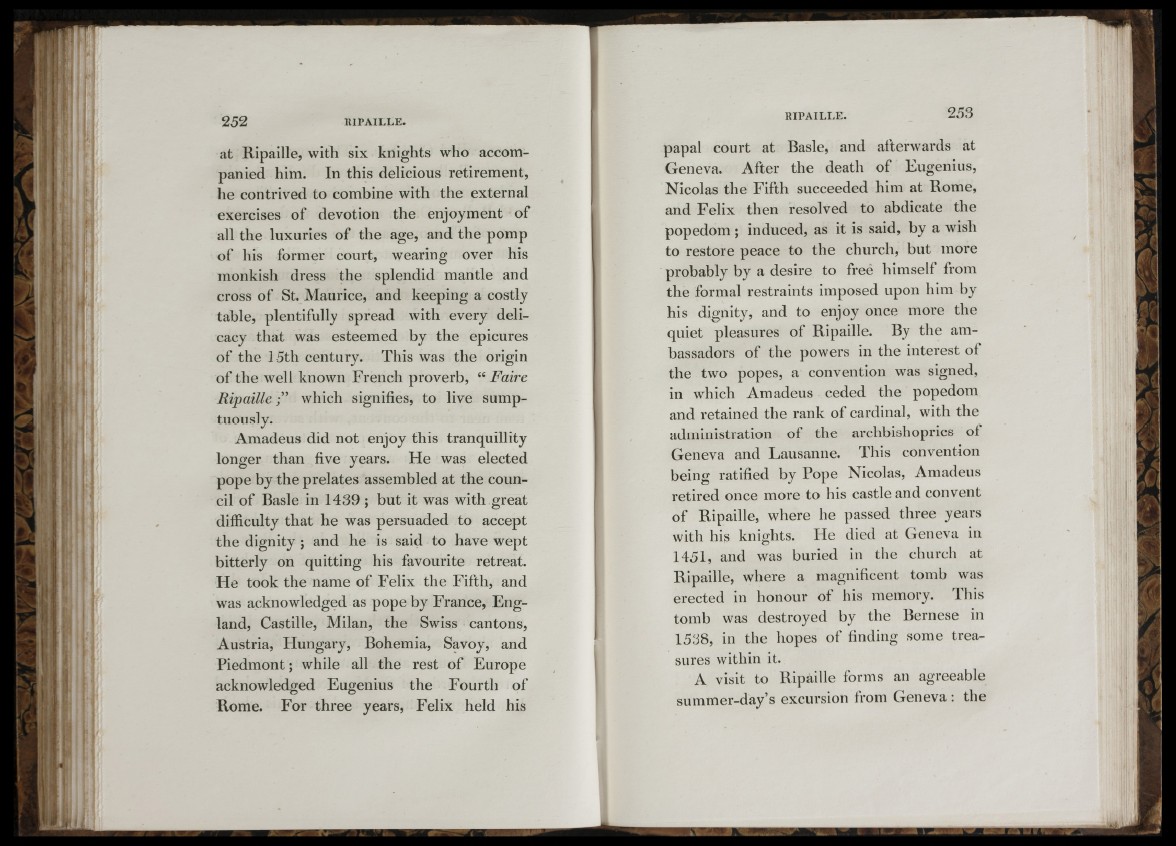
111
t e '
. «
E n
■ PI I! '
Ik
•«I * . ■
V
N
l ini . l a i j i i
ID i<
1 I
¿1 i iliv
B { ■ I
iI M* ili fT •' S i.
II:
1 -
252 R I P A I L L E .
at Ripaille, with six knights who accompanied
him. In this delicious retirement,
he contrived to combine with the external
exercises of devotion the enjoyment of
all the luxuries of the age, and the pomp
of his former court, wearing over his
monkish dress the splendid mantle and
cross of St. Maurice, and keeping a costly
table, plentifully spread with every delicacy
that was esteemed by the epicures
of the 15th century. This was the origin
of the well known French proverb, “ Faire
R i p a i l l e which signifies, to live sumptuously.
Amadeus did not enjoy this tranquillity
longer than five years. He was elected
pope by the prelates assembled at the council
of Basle in 1439 ; but it was with great
difficulty that he was persuaded to accept
the dignity ; and he is said to have wept
bitterly on quitting his favourite retreat.
He took the name of Felix the Fifth, and
was acknowledged as pope by France, England,
Castille, Milan, the Swiss cantons,
Austria, Hungary, Bohemia, Savoy, and
Piedmont; while all the rest of Europe
acknowledged Eugenius the Fourth of
Rome. For three years, Felix held his
papal court at Basle, and afterwards at
Geneva. After the death of Eugenius,
Nicolas the Fifth succeeded him at Rome,
and Felix then resolved to abdicate the
popedom ; induced, as it is said, by a wish
to restore peace to the church, but more
probably by a desire to free himself from
the formal restraints imposed upon him by
his dignity, and to enjoy once more the
quiet pleasures of Ripaille. By the ambassadors
of the powers in the interest of
the two popes, a convention was signed,
in which Amadeus ceded the popedom
and retained the rank of cardinal, with the
administration of the archbishoprics ot
Geneva and Lausanne. This convention
being ratified by Pope Nicolas, Amadeus
retired once more to his castle and convent
of Ripaille, where he passed three years
with his knights. He died at Geneva in
1451, and was buried in the church at
Ripaille, where a magnificent tomb was
erected in honour of his memory. This
tomb was destroyed by the Bernese in
1538, in the hopes of finding some treasures
within it.
A visit to Ripaille forms an agreeable
summer-day’s excursion from Geneva : the